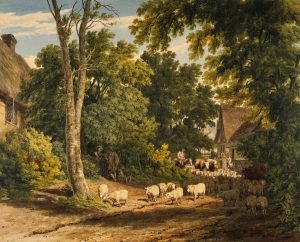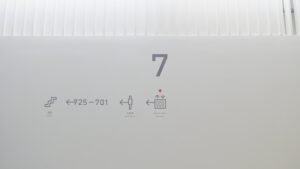Introduction: The Importance of Compelling Hotel Website Copy
In the competitive world of hospitality, having a compelling hotel website is crucial for attracting and converting guests. Your website copy plays a vital role in capturing the attention of potential guests and convincing them to choose your hotel over your competitors. Well-crafted copy can also have a significant impact on your search engine rankings, making it easier for potential guests to find your website.
When a potential guest visits your website, they are looking for information that will help them make a decision. Your website copy needs to provide them with the information they need in a clear and concise manner. It should highlight the unique features and benefits of your hotel, address their needs and pain points, and create a sense of urgency to encourage them to book.
In addition to attracting and converting guests, well-crafted website copy can also improve your search engine rankings. Search engines like Google prioritize websites that have high-quality, relevant content. By incorporating keywords and phrases that are relevant to your target audience, you can improve your website’s visibility in search engine results and attract more organic traffic.
Understanding Your Audience: How to Tailor Your Copy to Your Guests
To create compelling hotel website copy, it’s essential to understand your target audience. By identifying your target audience, you can tailor your copy to their specific needs and preferences. One way to do this is by creating buyer personas, which are fictional representations of your ideal guests.
When creating buyer personas, consider factors such as age, gender, occupation, interests, and travel preferences. This will help you understand what motivates your target audience and what they are looking for in a hotel. By addressing their needs and pain points in your website copy, you can create a more personalized and engaging experience for potential guests.
For example, if your target audience consists of business travelers, your website copy should emphasize amenities such as a business center, high-speed internet, and convenient location. On the other hand, if your target audience is families, your copy should highlight family-friendly amenities such as a pool, playground, and spacious rooms.
Finding Your Unique Voice: Developing a Brand Personality
In addition to understanding your audience, it’s important to develop a unique brand personality for your hotel. Your brand personality is the way your hotel is perceived by guests and sets you apart from your competitors. It should be reflected in your website copy, as well as in other marketing materials and interactions with guests.
To define your hotel’s brand personality, consider factors such as your hotel’s location, architecture, and design, as well as the type of experience you want to provide to guests. Are you a luxury hotel that offers a high-end experience, or are you a boutique hotel that focuses on personalized service? Your brand personality should be consistent across all touchpoints, from your website copy to your social media posts.
Creating a consistent tone and voice is also important for establishing your brand personality. Your tone should reflect the personality of your hotel and resonate with your target audience. For example, if you are a trendy boutique hotel targeting millennials, your tone might be casual and conversational. On the other hand, if you are a luxury hotel targeting high-end travelers, your tone might be more formal and sophisticated.
Differentiating yourself from competitors is another important aspect of developing your brand personality. Your website copy should highlight what sets your hotel apart from others in your area. This could be unique amenities, a convenient location, exceptional service, or a specific theme or design. By emphasizing your unique selling points, you can attract guests who are looking for something different and stand out in a crowded market.
Telling a Story: Using Narrative to Engage Your Guests
One of the most powerful tools in marketing is storytelling, and it can be particularly effective in the hospitality industry. By telling a compelling story about your hotel, you can engage potential guests on an emotional level and create a connection that goes beyond the transactional.
Crafting a compelling narrative for your hotel starts with understanding your target audience and what they value. What are their aspirations, desires, and pain points? How can your hotel address these needs and provide a memorable experience? By answering these questions, you can create a story that resonates with your audience and makes them want to be a part of it.
Your website copy should reflect this narrative and take potential guests on a journey. It should highlight the unique features and benefits of your hotel, as well as the experiences and memories that guests can expect to create during their stay. By painting a picture with words, you can transport potential guests to your hotel and make them feel like they are already there.
Highlighting Your Hotel’s Features: Showcasing Your Property’s Best Assets
Your hotel’s unique selling points are what set you apart from your competitors and make you stand out in the minds of potential guests. It’s important to identify these unique features and highlight them in your website copy.
Start by conducting a thorough analysis of your hotel and its amenities. What makes your hotel special? Is it a stunning rooftop pool, a world-class spa, or a Michelin-starred restaurant? Whatever it is, make sure to showcase it prominently on your website and describe it in detail in your copy.
In addition to highlighting amenities, it’s also important to use visuals to showcase your property. High-quality photos and videos can give potential guests a glimpse into what they can expect during their stay. Make sure to include a variety of visuals that showcase different aspects of your hotel, from the rooms and common areas to the views and surrounding area.
Using Descriptive Language: Painting a Picture with Words
Descriptive language is a powerful tool in hotel website copy. By using sensory language, you can create vivid descriptions that transport potential guests to your hotel and make them feel like they are already there.
When describing your hotel, use words that appeal to the senses. For example, instead of saying “our hotel has a beautiful pool,” you could say “dive into our sparkling turquoise pool and feel the warm sun on your skin as you relax on a plush lounge chair.” This description creates a more immersive experience for potential guests and makes them feel like they are already enjoying the amenities of your hotel.
Creating a sense of place is another important aspect of using descriptive language in hotel copy. Describe the surrounding area and what guests can expect to see and do during their stay. Whether it’s a bustling city center, a tranquil beachfront, or a picturesque mountain range, paint a picture with words that captures the essence of your location and makes potential guests want to experience it for themselves.
Creating Urgency: Persuading Guests to Book Now
Creating a sense of urgency is a powerful technique for persuading potential guests to book now. By using urgency and scarcity in your website copy, you can create a sense of FOMO (fear of missing out) and encourage guests to take action.
One way to create urgency is by offering limited-time offers and promotions. For example, you could offer a discount for bookings made within a certain time frame or a special package that is only available for a limited number of rooms. By emphasizing the limited availability of these offers, you can create a sense of urgency and encourage guests to book now.
Using persuasive language is another effective way to create urgency. Use words and phrases that convey a sense of urgency, such as “limited availability,” “book now,” and “don’t miss out.” By using persuasive language, you can create a sense of urgency and encourage potential guests to take action.
Focusing on Benefits: Emphasizing What Guests Will Get from Staying with You
When writing hotel website copy, it’s important to focus on the benefits that guests will get from staying with you. Instead of simply listing features and amenities, emphasize how these features will enhance the guest experience and make their stay more enjoyable.
For example, instead of saying “our hotel has a rooftop pool,” you could say “relax and unwind in our rooftop pool, where you can soak up the sun and enjoy breathtaking views of the city skyline.” This description not only highlights the feature but also emphasizes the benefits of using it, such as relaxation and stunning views.
Focusing on guest experience and satisfaction is another important aspect of emphasizing benefits. Highlight the exceptional service and personalized attention that guests can expect during their stay. Emphasize the ways in which your hotel goes above and beyond to ensure that guests have a memorable experience.
Using social proof is another effective way to reinforce the benefits of staying at your hotel. Include testimonials and reviews from satisfied guests that highlight the positive experiences they had during their stay. This social proof can help build trust and credibility with potential guests and make them more likely to choose your hotel.
Optimizing for SEO: Incorporating Keywords and Phrases
Incorporating keywords and phrases into your hotel website copy is essential for improving your search engine rankings and attracting more organic traffic. By understanding the role of SEO in hotel website copy and conducting keyword research, you can optimize your copy to rank higher in search engine results.
Start by conducting keyword research to identify the keywords and phrases that are relevant to your target audience. Use tools like Google Keyword Planner or SEMrush to find keywords that have high search volume and low competition. These are the keywords that you should incorporate into your website copy.
When incorporating keywords and phrases, it’s important to do so naturally. Avoid keyword stuffing, which is the practice of overusing keywords in an unnatural way. Instead, focus on creating high-quality, relevant content that provides value to your audience. Incorporate keywords in a way that flows naturally and enhances the readability of your copy.
In addition to incorporating keywords, it’s also important to optimize other elements of your website for SEO. This includes meta tags, headings, URLs, and image alt tags. By optimizing these elements, you can improve your website’s visibility in search engine results and attract more organic traffic.
Conclusion: Bringing It All Together for Compelling Hotel Website Copy
Creating compelling hotel website copy requires a holistic approach that takes into account the needs and preferences of your target audience, the unique personality of your hotel, and the power of storytelling and descriptive language. By understanding your audience, developing a unique brand personality, and telling a compelling story, you can engage potential guests on an emotional level and create a connection that goes beyond the transactional.
Highlighting your hotel’s unique selling points and using descriptive language to paint a picture with words can further enhance the guest experience and make your hotel stand out from the competition. Creating urgency and emphasizing the benefits of staying with you can persuade potential guests to book now and choose your hotel over others.
Finally, optimizing your website copy for SEO by incorporating keywords and phrases can improve your search engine rankings and attract more organic traffic. By taking a holistic approach to hotel website copy, you can create a compelling online presence that attracts and converts guests, improves the guest experience, and drives bookings.






